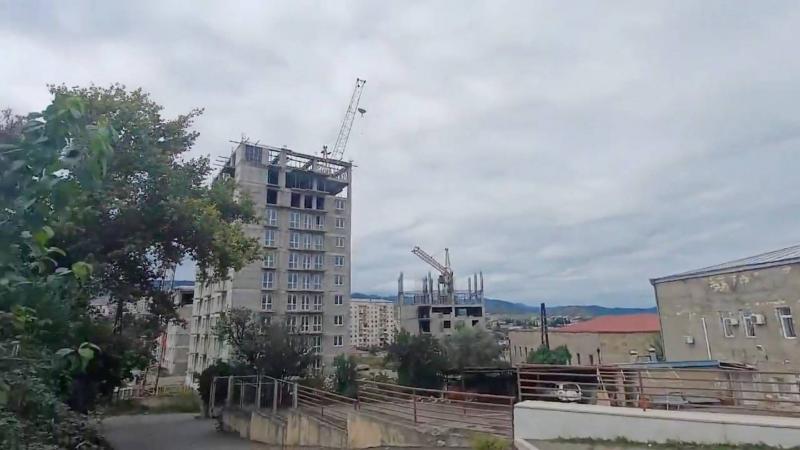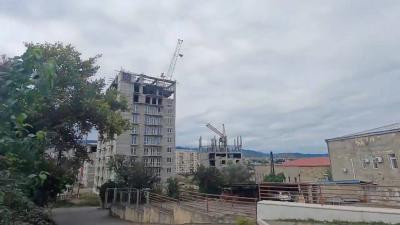Azerbaijan announced today, Tuesday, the launch of "anti-terrorism operations" targeting Armenian forces in the disputed region of Nagorno-Karabakh, just hours after six Azerbaijani citizens were killed in explosions from landmines in separate incidents. It reported that it had taken control of more than 60 positions of the Armenian army. The Azerbaijani Defense Ministry stated on its website: "Anti-terrorism operations have been launched within Nagorno-Karabakh," emphasizing that "the operation will not target civilians or civilian infrastructure."
The human rights investigator of the separatists in the region reported that 25 individuals have been killed during the military operation conducted by Azerbaijan, including two civilians. The ministry highlighted that "the operation targets only legitimate military objectives, utilizing high-precision weapons available to the Azerbaijani army." It also mentioned that it had informed the Russian peacekeeping forces' command and the monitoring center about the actions taken in the region.
Later on, it announced the disruption of Armenian armed forces' positions, firing points, and military facilities through high-precision weaponry. Witnesses reported hearing sounds of explosions in the capital Stepanakert, while social media users shared videos showing bombardments and missile launches claimed to be by the Azerbaijani army. Authorities loyal to Armenia in Nagorno-Karabakh announced that the capital of the region and other cities were targeted "with heavy gunfire."
Russian state news agency TASS quoted Azerbaijan's Assistant President Hikmet Hajiyev stating that "Baku is close to achieving the main objectives of its operation in Nagorno-Karabakh by neutralizing certain military targets." The press office of the separatist authority in the Nagorno-Karabakh region announced that "the separatist leadership in the area offered a ceasefire and negotiations with Baku after Azerbaijan's military operation."
Azerbaijan's presidential administration stated that "Baku will continue what it calls anti-terrorism measures in Nagorno-Karabakh until the Armenian military units surrender and lay down their arms." They added: "The presidency is prepared to meet with representatives of the Armenians controlling the separatist mountain enclave within Azerbaijan. However, to halt the anti-terrorism actions, the illegal Armenian military units must raise the white flag, surrender all weapons, and dissolve the illegal regime... otherwise, the anti-terrorism operations will continue to the end."
In a response, Armenian Prime Minister Nikol Pashinyan said that "Azerbaijan's forces are trying to seize population centers in Karabakh." Pashinyan added that he was in contact with the separatist leaders in Karabakh and expected Russian peacekeepers to intervene to stabilize the situation. The Armenian Foreign Ministry urged Russian peacekeepers in the Karabakh region of Azerbaijan to intervene and stop "the full-scale aggression" from Baku against the local population.
In light of the renewed clashes, U.S. Secretary of State Antony Blinken stated that Azerbaijan's unacceptable military actions risk aggravating the humanitarian situation in Nagorno-Karabakh, calling for an immediate end to hostilities and a move towards direct dialogue.
Russia called on both Azerbaijan and Armenia to "end the bloodshed" in Nagorno-Karabakh. Russian Foreign Ministry spokeswoman Maria Zakharova indicated that "Russia is concerned about the escalation," confirming that "Russian peacekeepers continue their work in the region." Kremlin spokesman Dmitry Peskov noted that "Russia is in contact with both Azerbaijan and Armenia, calling for negotiations to resolve the conflict over Nagorno-Karabakh." He added: "Russia is worried about the latest escalation there, considering the safety of civilians as the most important issue."
The European Union's foreign policy chief, Josep Borrell, condemned the military escalation in Karabakh and urged Azerbaijan to "cease its current military activities." In a statement, he said: "The European Union remains fully engaged in mediating dialogue between Azerbaijan and Armenia."
The French Foreign Ministry stated: "There is no justification for the military operation launched by Azerbaijan in Nagorno-Karabakh," calling for an immediate meeting of the United Nations Security Council following Baku's move. France noted in a statement that it is working with its partners to prepare for "a strong response to this unacceptable attack."
Turkish President Recep Tayyip Erdoğan expressed today that Turkey supports Azerbaijan's actions to maintain its territorial integrity. He added in his speech before the United Nations General Assembly that the region is part of Azerbaijani territory, and imposing a different status on the region is unacceptable. The Turkish Foreign Ministry indicated that "Azerbaijan has had to take measures on its sovereign territory in Nagorno-Karabakh after concerns remained unresolved following the conflict with Armenia in the region in 2020." It added in a statement: "Due to legitimate concerns regarding the situation on the ground, which has not stabilized since the end of the second Karabakh war, Azerbaijan has been compelled to take necessary measures on its sovereign territory."




